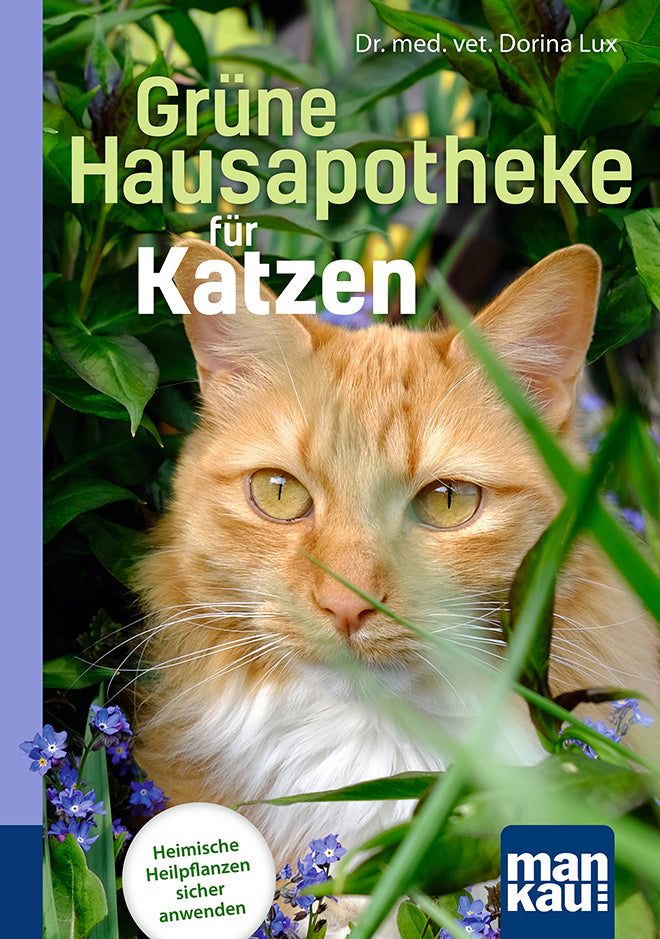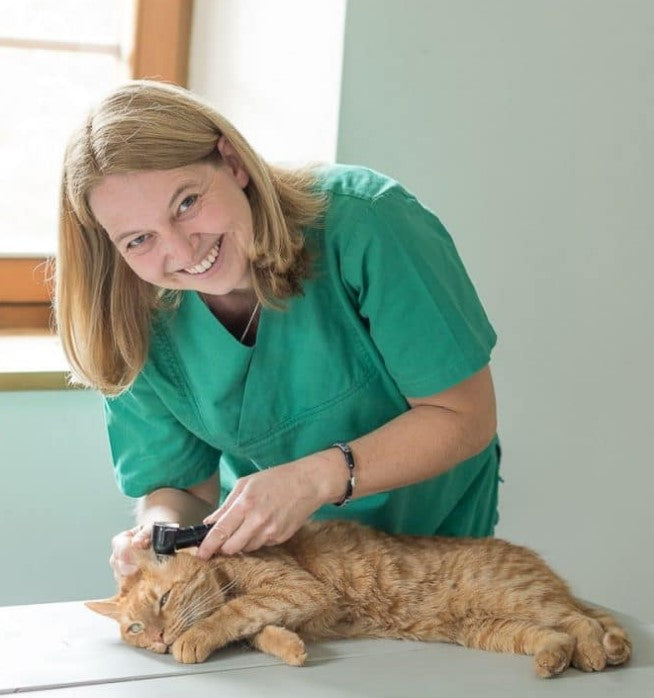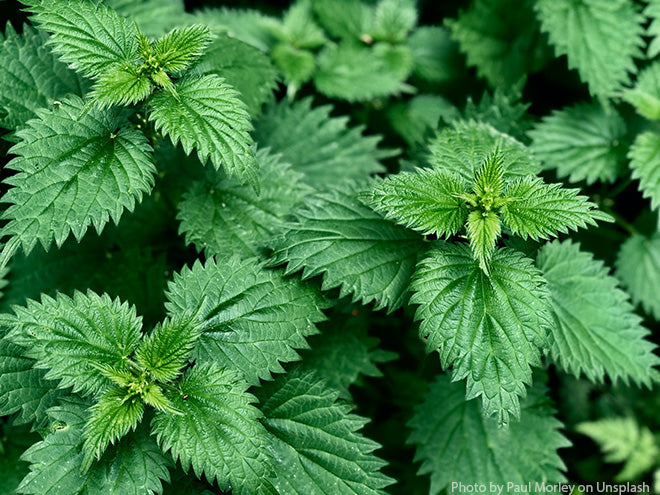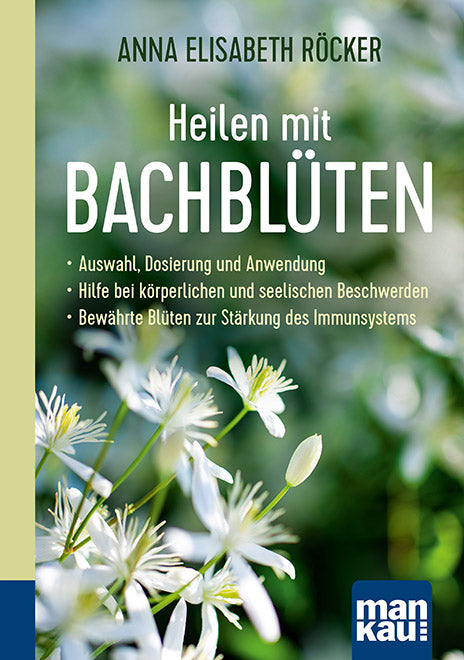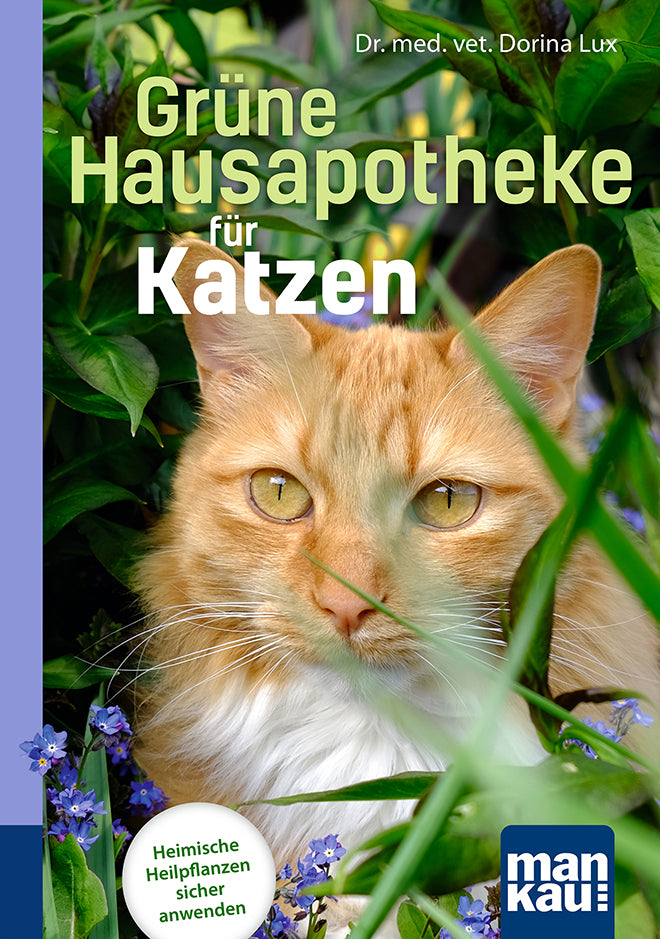
Gentle medicine for cats: “Green medicine cabinet for cats” gives tips on natural treatment with local medicinal plants
Gentle medicine for cats: “Green medicine cabinet for cats” gives tips on natural treatment with local medicinal plants
The cuddly and yet stubborn cat has been one of the most popular pets for thousands of years. Its special nature also has an impact on illnesses and treatment options. In her new compact guide, “ Green Home Medicine Cabinet for Cats ”, veterinarian Dorina Lux shows how cats can be effectively supported using natural remedies.
Sensitive predators
After the practical compact guide for man's "best friend", now follows the "Green Medicine Cabinet" for a pet that is at least as popular and that crept into our hearts thousands of years ago. Due to their sensitive nature and as pure carnivores, cats play a special role in veterinary medicine. This is because their illnesses, as well as their treatment options, differ considerably from those of other pet species.
In her new book, holistic veterinarian Dr. med. vet. Dorina Lux offers help and instructions for successfully treating cat illnesses using gentle natural remedies. She shows how nutrition affects a cat's metabolism, how stress affects the animal's behavior, and how common ailments can be treated with native medicinal plants. Unlike conventional medicines, these are often better tolerated and are always available in the wild or on your own doorstep.
Eating habits and health
Every cat owner knows that domestic cats are very special animals. Despite their cuddly nature, they still carry the stubborn heritage of their wild ancestors within them. These peculiarities are not only evident in their behavior, but also in their diet and detoxification metabolism. Our domestic cats are carnivores through and through. As wild cats, they prefer to feed on mice and birds, but grasshoppers, frogs, snakes, fish, rabbits, polecats and many other animal species can also be part of their prey pattern.
The only plant-based food that cats regularly consume is found in the digestive tract of their prey and makes up a maximum of five to ten percent of their diet. Depending on the prey, this can be grains, seeds, nuts, leaves, grass, fruit, vegetables or other things.
The almost exclusive diet of prey animals and the metabolism adapted to animal food have a variety of effects, including on the detoxification processes in cats. These are important for neutralizing harmful and toxic substances that are ingested from the outside, but can also be created through normal food metabolism. However, since cats detoxify much more slowly than other animals, the effect of medicines and medicinal plants often lasts longer in their organism.
Cats and herbs
Every cat owner has probably despaired at their cat's demanding sense of taste. There are cats who have to be offered a different type of food for every meal, otherwise they go on hunger strike. Still others prefer to be given exactly the same food every day and refuse to eat as soon as a new batch is opened. The worst thing is when you try to give them medicine. Even the most cleverly hidden thing in butter or sausage spread seems to be discovered, and the treat is either completely rejected or the tablet is licked clean and spat out.
However, when they are ill, many cats will even voluntarily ingest the herbs, which often taste bitter. Two mechanisms are responsible for this: bitter tolerance and the ability to self-medicate, which can also be observed in wild animals with digestive problems. Many (unfortunately not all) cats know instinctively whether and for how long they really need a medicine or medicinal plant. Many illnesses can therefore be effectively treated or successfully supported with medicinal plants. The "Green Home Medicine Cabinet for Cats" provides all the important information about use and dosage for common complaints and also gives advice on when a visit to the vet is indicated.
Book tip:
Dr. med. vet. Dorina Lux: Green home medicine cabinet for cats . Using native medicinal plants safely. Compact guide . Mankau Verlag, 1st edition June 2022, flap book, color, 11.5 x 16.5 cm, 158 pages, 12.00 euros (D) / 12.40 euros (A), ISBN 978-3-86374-655-1
Link recommendations:
More information about the compact guide “Green medicine cabinet for cats”
To the reading sample in PDF format
More about author Dr. med. vet. Dorina Lux
Our social networks − for questions, criticism, suggestions
